Screen Australia: Documentary in 2021
Screen Australia’s new Head of Documentary Alex West and the documentary team on the local factual sector, applying for funding and what’s ahead.
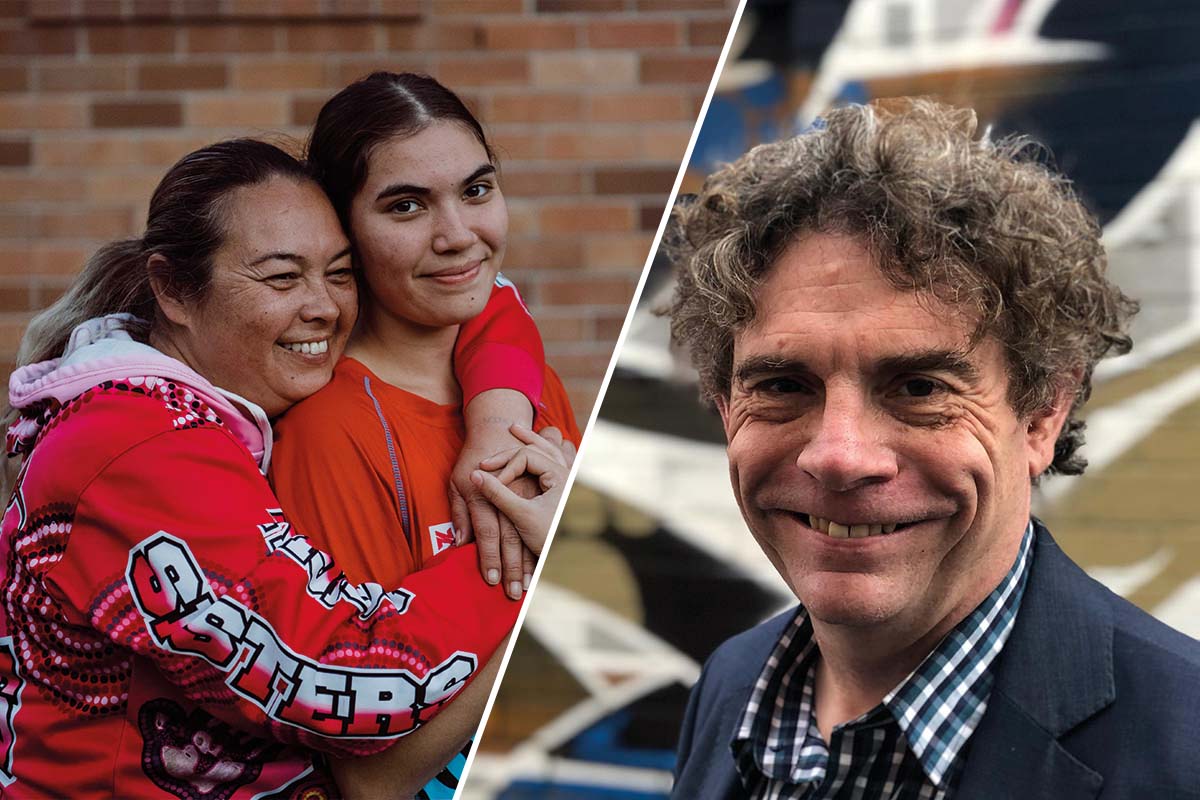 The Department, Alex West
The Department, Alex West
Alex West wants to be clear: making documentaries is difficult. But as any documentary-maker will know, this isn’t unique to 2021, and, while there is much in flux at the present time, there are just as many reasons to be optimistic.
“There’s some anxiety among the sector as Producer Offset changes are made and as a result some pretty dramatic statements about the ‘death of documentary’ in the media,” he says. “In reality we continue to fund a diverse range of projects across all the doc genres which promise real impact. There’s more funding for factual programming, more screens, more pathways to audience, and more variety in a healthy resilient sector that will only grow going forward.”
The new Head of Documentary at Screen Australia brings with him more than 25 years of experience as a factual producer, during which he also worked as an investment manager at Film Australia. He has written, produced and directed over 40 factual and documentary series and specials for networks, including BBC, C4, Five, ABC, SBS, National Geographic, Discovery and Seven. He co-created the series Who Do You Think You Are? He’s made series and specials including Ned Kelly Uncovered, Utopia Girls, Inside the Firestorm, Immigration Nation: The Secret History of Us, The Art of Australia, Bodyline: The Ultimate Test, Making Australia Great, Revolution School and Monash & Me. In 2020 he won the Emmy Award for best nature film for The Serengeti Rules with Nicholas Brown.
It’s this experience that was part of the reason West moved back into a screen agency role. West understands the pressures on documentary-makers because he has faced the same hurdles.
“It's always been the case that documentary makers have to be adaptive and resilient because they deal with the real world and the real world has an irritating habit of being very changeable,” he says.
“It was always hard to make factual programming. It has never changed. And I have the evidence of my own experience, going back to the late 1980s: making documentaries and factual programmes is extremely challenging. It is the most difficult area of filmmaking in my belief.
“[But] with that background… I want to encourage that there's every reason to remain optimistic and celebratory of the achievements of Australian documentary makers and the form and the genre in general.”
West acknowledges that decisions are in the pipeline – such as conversations around the Producer Offset reforms – that are causing levels of uncertainty. But as the sector waits for outcomes, documentaries are still being made to an extremely high quality, released, and finding audiences, all in the midst of a global pandemic.
“Compared to 15 years ago, the quality, the diversity, the skill set is as strong as it's ever been,” he says, pointing to the Australia Uncovered series on SBS as one example.
The series includes documentaries such as Bowraville Murders, Strong Female Lead, Incarceration Nation, Our African Roots and The Truth About Anxiety: Celia Pacquola, dealing with issues spanning mental health, gender politics, child protection and racial injustice.
“They're very well made, they're highly impactful,” he says. “The press coverage on these projects is stunning. It's as good a press as I have ever seen. SBS are absolutely thrilled by it; and in terms of our partnership, which is just one example, it's really hitting the mark.”
Something West is seeing in the documentary space as well, is a strong sense of creative agency and authenticity.
“So the idea that people are telling their own stories or stories that matter to them in ways that are more vibrant, more delineated,” he says.
One such example is new series Unheard, a six-part investigative documentary series from LADbible Australia, which is releasing on Amazon Prime Video on 29 October (with two episodes free as video on demand regardless of whether you’re a subscriber or not).
Shahn Devendran is the EP, series producer, writer and creator of Unheard and Head of Originals at LADbible Australia. In 2020, off the back of a previous LADbible campaign called Citizen Reef, he began forming a campaign around helping broach the issue of racial injustice in Australia.
“I got to a point where I was like, we reach millions and millions of people every day. How can we start using this influence to actually help?” he says.
The first thing Devendran did was reach out to organisations National Justice Project, National Aboriginal and Torres Strait Islander Legal Services, Deadly Connections Community and Justice Services, Human Rights Commission, Asian Australian Alliance, Islamophobia Register Australia, African Women Australia, Refugee Council of Australia and All Together Now.
Working with these partners and the communities they represent, they began identifying the key stories that were symbolic to the issues of racism in Australia and that would become the topic of each half-hour episode including: Indigenous deaths in custody; the targeting of Indigenous youth; attacks towards the Asian community during COVID; assaults on Muslim women; the treatment of asylum seekers and refugees; and the vilification of the African community.
“What was important on this project is that we could reach as large an audience as possible to raise awareness and drive action,” Devendran says. “LADbible Australia's reach is over half a billion, but we knew that partnering with Amazon Prime video, we could potentially broaden and increase that reach with their global audience of 175 million.”
An integral part of making Unheard – and which West alluded to earlier – is making sure there was authenticity and ownership of the different stories. Devendran ensured that each team was led by director-writers from the respective communities.
“But as you can probably identify with several teams and directors in place, it was also important that the six episodes had a cohesive style to make it feel like a cohesive series. The key behind this was creating a real bond between the directors on each team and then with each episode, they started to adopt approaches from the other,” he says, adding that the episodes feature animation, photographs, phone conversations, and infographics to build a digestible and emotionally impactful account.
“We worked with each of them, making sure that the structures were the same, but told through those directors' voices and told through the voices of the participants.”
For Devendran, there is a rise in the local and global interest in Australian stories rights now, which means that Australian filmmakers are being valued and allowed to explore new ways of telling stories.
“In the past I feel documentary has often been seen as an extended news story, which can often come across as a bit dry,” he says. “But that mould is being broken and rather than copying old documentary formats people are looking at new and creative ways at telling these stories in a way that best represents the subject matter – and we certainly feel we’ve done that with Unheard.”
West says it has always been a documentary maker’s DNA to be agile and resilient like this.
“In drama it says on page six that it rains, so you make it rain and it's all about control,” he says. “Documentary and factual programming is very hard to control.”
It means while they are – and always will be – struggles as a documentarian, “there has never been a more important time for factual stories to take a prominent and visible place in society.”
“I started making factual television programmes and documentaries in the day because I wanted to change the world. I was that idealistic,” West says.
When he saw the job advertisement for Head at Documentary he had to think – was he still that idealistic person? Or had the years made him too cynical?
“But actually in thinking about the role I realised that I still have plenty of passion for the thing that we do, which is make factual films,” he says.
“And I think just as issues – around climate change, social issues and politics – have become more and more critical, the power of documentaries and factual storytelling to bring them to our attention and really promote change has also never been higher.”
Find out what West is looking for below, as well as meet the long-standing and new members of the Documentary Unit at Screen Australia. Apply for Documentary funding, or learn more about what streams you can apply for here
The Documentary Unit
ALEX WEST
Head of Documentary
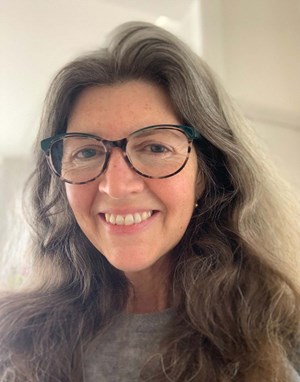
JENI MCMAHON
Production and Development Investment Lead
Jeni McMahon has been involved in producing and funding memorable and meaningful factual content throughout Australia for the last twenty years. Previously a producer at her company Rebel Films, and a former investment manager at Film Victoria, Jeni has worked with many of Australia’s leading documentary filmmakers. She has a deep understanding of how the industry works from both a creative and financial perspective. As an independent producer, she has worked closely with Indigenous communities to create iconic series such as Bush Mechanics and more recently the Black As web-series, which has garnered over 200 million views on YouTube. With over 20 broadcast credits for ABC and SBS, career highlights include the much-loved Bush Mechanics and Black As series, the multi-award-winning documentary Then the Wind Changed (2012 Walkley, 2012 ADG Nomination, 2013 ACCTA, 2013 Logie Nomination) and the doco-drama Coniston (2012 ATOM) and the production of Marree Man, Australia’s first “mobi-doc” a made for mobile documentary and a finalist at the 2007 Mipcom Mobile and Internet TV Awards.
ALYSSA ORVIS
Development and Investment Manager
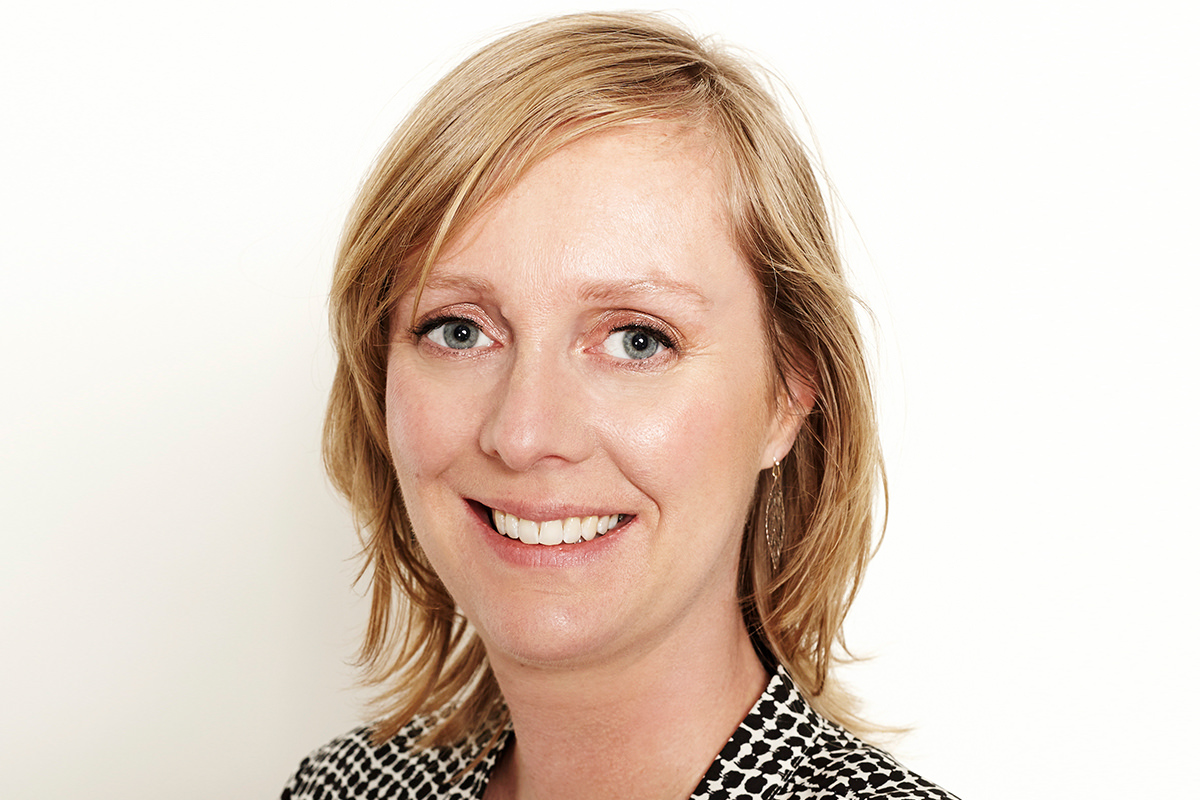
Alyssa Orvis has been a Documentary Development/Investment Manager at Screen Australia for the past seven years and has been involved in the development, funding and management of a slate of documentaries including features, television series, online shorts and new media projects. She has overseen a number of online initiatives, including Art Bites and Love Bites with ABC Arts, Doco 180 for whimn, the short-documentary initiative with The Guardian UK, and Pitch Australiana with VICE. Prior to commencing with Screen Australia, Alyssa divided her time between Sydney Film Festival and the Abu Dhabi Film Festival, where she oversaw guest and industry teams and advised on programming from 2009-2012. Alyssa lived in New York for 10 years, where she worked at Tribeca Film Festival, the New York Film Festival and the Bicycle Film Festival.
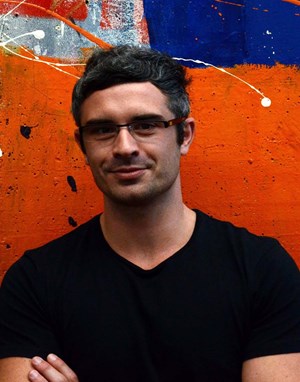
CIERON CODY
Development and Investment Manager
Cieron Cody is a development/production executive with experience overseeing slates across feature film, documentary, broadcast drama, children’s content, innovation, games and VR. His experience encompasses a breadth of development/production financing programs as well as initiatives designed to advance concepts, elevate talent and build business. In 2017 Cieron departed Screen Queensland as Vice President of Development and Production supporting the creative and commercial outcomes of a diverse range of content. Cieron has supported a range of award-winning productions with some of Australia’s and the world’s most recognised market players and talent. After several years as Commissioning Editor with SBS/National Indigenous Television, Cieron has joined Screen Australia as Development and Investment Manager – Documentary.
DANIELLA ORTEGA
Development and Investment Manager
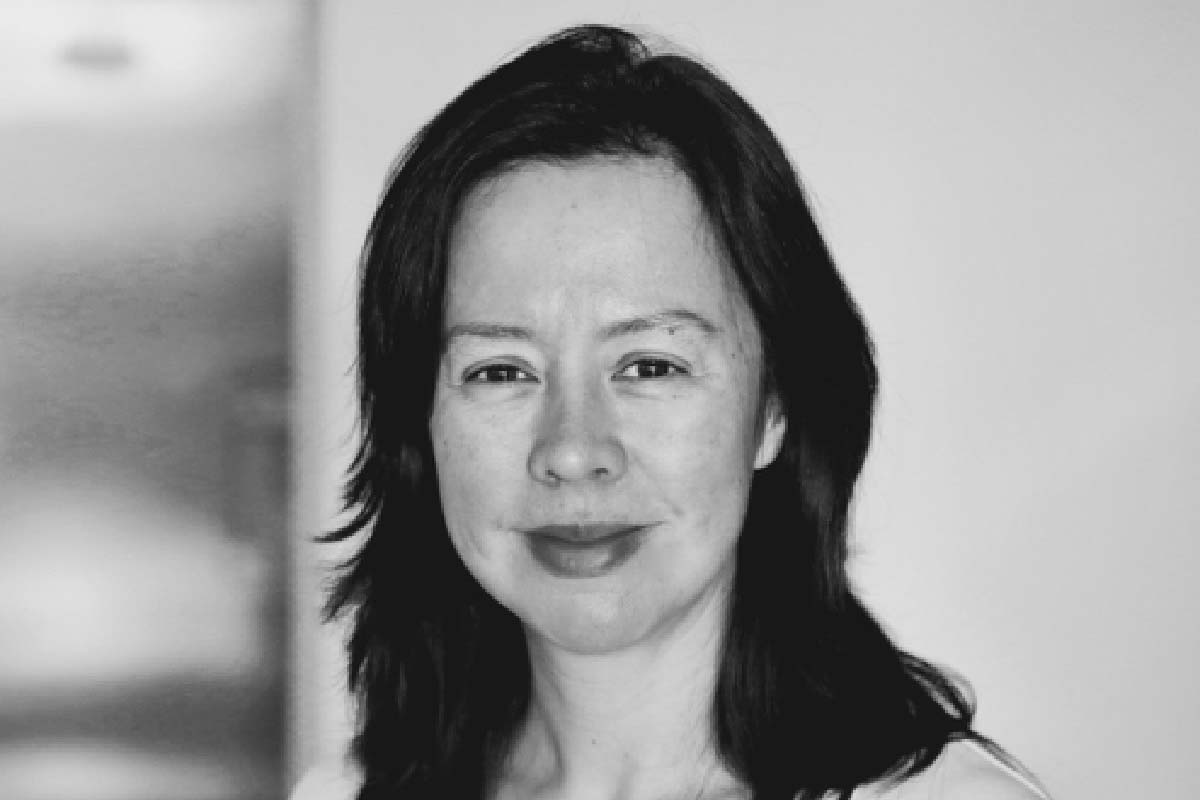
Daniella Ortega is an award-winning documentary filmmaker and screen professional dedicated to excellence in storytelling and communicating complex concepts in innovative ways. Focused on high-end documentaries about science, history and natural history, Daniella is the originator, writer and co-director of Carbon - An unauthorised biography, an unconventional documentary project responding to the climate emergency we are living in. Daniella has recently joined the documentary team at Screen Australia as a Development and Investment Manager, a role that allows her to draw on her experience to support the wider documentary industry.
A CAREER HIGHLIGHT?
Alex West: Co-creating and seeing Who Do You Think You Are? from development to production.
Jeni McMahon: Creating a replica Bush Mechanics vehicle for permanent display in ACMI’s new exhibition space. The car was painted in Yuendumu by the same artists who painted the original Ford Fairlane and involved a 7000km road trip through Victoria, South Australia, NT, NSW (where it was chopped in half) and then transported back to Melbourne where it now proudly sits alongside the Mad Max Interceptor. An epic journey for an iconic vehicle.
Alyssa Orvis: Over four editions of the Abu Dhabi Film Festival (2009-2012) I ran a department of around 60 staff and volunteers all from different cultural backgrounds. Finding common ground and instilling a sense of camaraderie was the most humbling and rewarding experience, plus the food was fantastic!
Cieron Cody: Seeing the first documentary feature I’d commissioned premiere at a reputed film festival to a massive theatre full of energized audience. I brought my mum, dad and a best friend and it was the first time I was able to collapse my worlds together and celebrate these things in the one space. The beauty of it was that I wasn’t the only one experiencing some version of this, I was surrounded by it. I was struck with an enriched appreciation of the power of documentary as much more than entertainment, but a truly unifying community force.
Daniella Ortega: Joining the Documentary team at Screen Australia is definitely a career highlight! Coming from a background as an independent documentary filmmaker I’ve produced work that I’m very proud of. However, this career shift into working for Screen Australia and supporting the wider documentary industry feels right at this point. I’m truly excited by the interactions with filmmakers and by the access to a bird’s eye view of this extraordinary and diverse documentary industry around us. I’m inspired, energised and delighted to be here!
WHAT ARE YOU NOTICING ABOUT THE AUSTRALIAN DOCUMENTARY SECTOR RIGHT NOW?
Alex West: A huge and growing diversity of approach and forms; the convergence between theatrical release and VOD release; and my top picks for feature length films also being featured on BVOD platforms.
Jeni McMahon: Despite Covid and the uncertainty around the media reforms, I see resilience, opportunity and a lot of talented, hardworking filmmakers making great content.
Alyssa Orvis: The documentary sector has been in flux with ongoing changes in viewing habits, an increase in streaming platforms as well as the proposed changes to the offset legislation not to mention the ongoing impacts of COVID. Despite the challenges we’re still seeing quality projects across a range of mediums from short form through to blue-chip series. There’s been an increase in projects being commissioned by the SVODS – some examples are we’ve seen the first Australian Documentary Netflix Original commission (Microworlds), first Disney + documentary series (Shipwreck Hunters) and a short form series for Amazon (Unheard).
Cieron Cody: The sector has faced difficult times and in the spirit of being future-focused, it is measuring up as impressively resilient, adaptable and dynamic.
Daniella Ortega: I notice that this is a time of flux and opportunity for documentary in Australia. There are many varied and diverse platforms emerging for documentary stories to flourish. Now that I’m here in this role, it’s a chance to help filmmakers seize on these opportunities and get their stories seen on as many screens as possible large and small.
WHAT ARE YOU LOOKING FOR IN APPLICATIONS?
Alex West: A strong sense of how the impact of a project works in relation to the particular screen it is intended for. Do you understand who your audience are? And how and where they are watching?
Jeni McMahon: Stories and issues that reflect the diversity of Australian identity and society.
Alyssa Orvis:
- Why are you the right person to be telling this story? Do you have a personal connection to the issue/story? If so be sure to mention it.
- Why does your story need to be told now? In other words, what is the contemporary relevance
- Do your research – know what kinds of projects are out there so you’re not replicating something already in the marketplace or if it is the same topic, what’s your new angle/fresh take?
Cieron Cody: An application is a great chance to express what you know about your project and make an irresistible case as to the context through which it will have greatest impact. A proposition with clear and purposeful ‘direction’ knows where it’s going and ‘why,’ and this hopefully goes beyond aspiration and brings strength to strategy.
Daniella Ortega: I’m primarily looking after the Development applications at the moment and shortly will take on Investment applications. In Development, what I’m looking for are strong compelling ideas, backed up by great creative teams who can see the projects in their minds and know who their audience is. When this is evident in their application it’s inspiring and exciting to see!
WHAT’S A DOCUMENTARY YOU’VE SEEN IN THE PAST YEAR PEOPLE SHOULD WATCH?
Alex West: That’s a very tough a question because there are so many great films and important series out there. On TV I’d have to say Love on the Spectrum (ABC iview/ Netflix) and Revelation (ABC iview). On larger screens/longer formats I was taken by My Name is Gulpilil (ABC iview), and Strong Female Lead (SBS On Demand)
Jeni McMahon: I’m Wanita (screening at upcoming Sydney Film Festival) was an unexpected treat, a character driven observational doc from a first-time director, nicely crafted and told with warmth and compassion.
Alyssa Orvis: There are so many! Hopefully everyone is watching what is being made by Australians – we have so much talent here. I am going to shamelessly plug two recent Screen Australia funded projects:
- Phenomena is a brilliant nine-part short form series that is part art, part science – it is visually amazing and has a fantastic soundtrack from The Presets’ Kim Moyes. It was released via YouTube and Facebook by ABC Science and there is an additional 28-minute version on ABC iview.
- Hating Peter Tatchell is a wonderful and inspiring feature documentary from first time director Chris Amos about the LGBTQIA+ rights activist Peter Tatchell. It is available to watch on Netflix.
Cieron Cody: Incarceration Nation (SBS On Demand): this is a powerful look at our unbroken chain of systemic failure for First Nations Australia. The feature documentary synthesises centuries of history yet culminates into a fine point of contemporary relevance. It prosecutes a compelling thesis and further yet exemplifies the value of Indigenous authorship as a necessary force in not only driving the discussion for issues at the centre of the First Nations experience, but in setting the agenda for the wider nation.
Daniella Ortega: I am addicted to the ABC series Back to Nature (produced by Media Stockade & Threshold Pictures) simply for transporting me to places I want to be while stuck in never ending lockdown, with a sensitivity for people and place that is soothing for my soul.

What to read next
How director Sally Aitken and producer Bettina Dalton cut between past and present to shine a spotlight on an extraordinary woman’s life.
21 Jul 2021
Caris Bizzaca